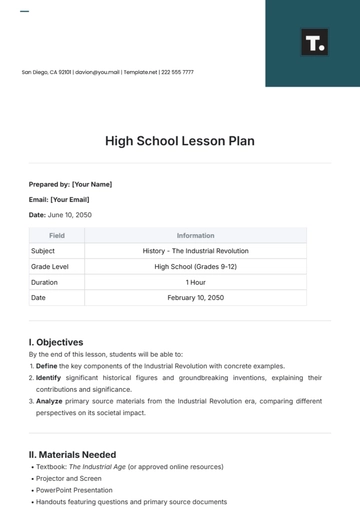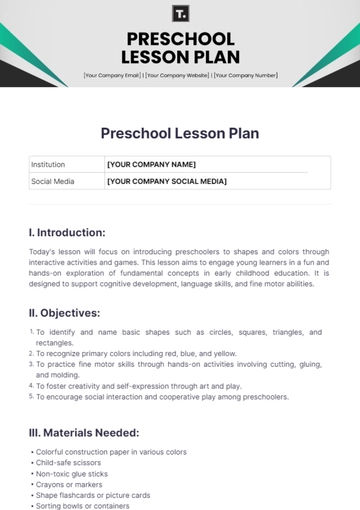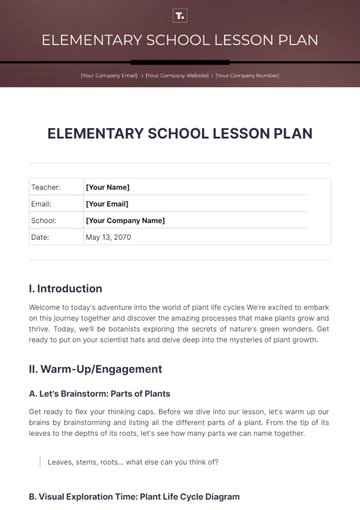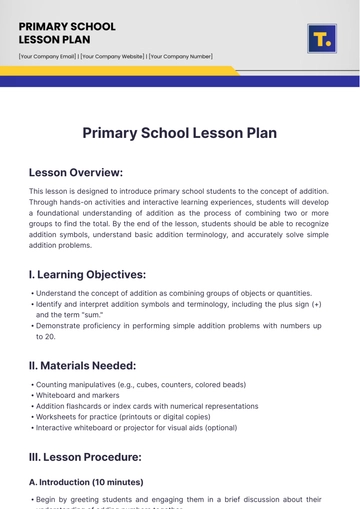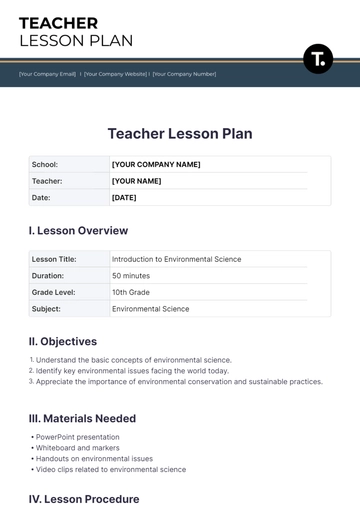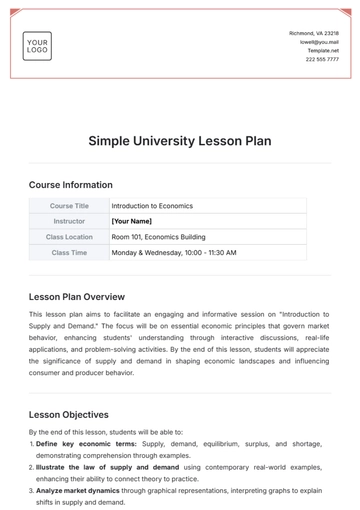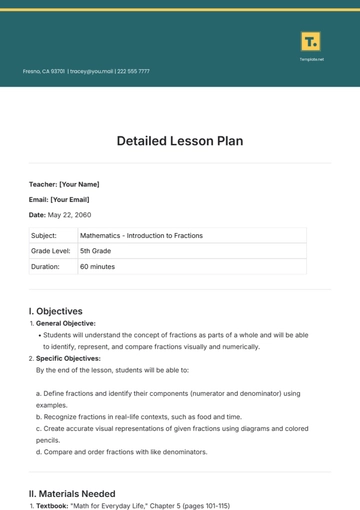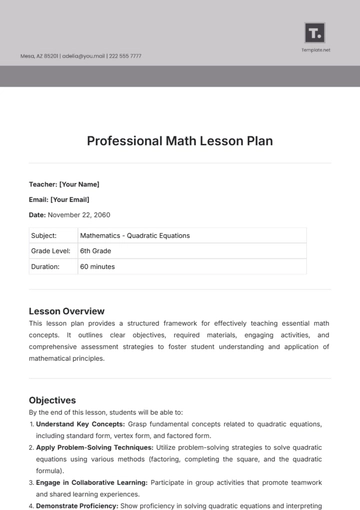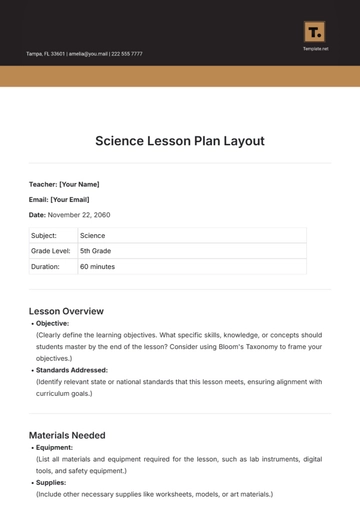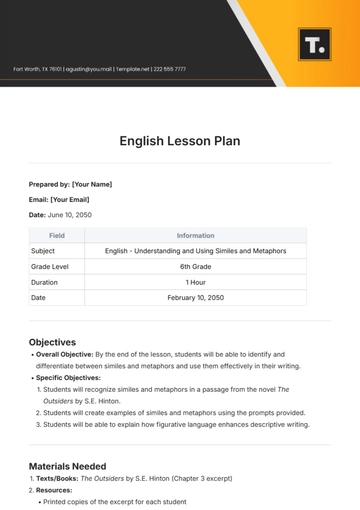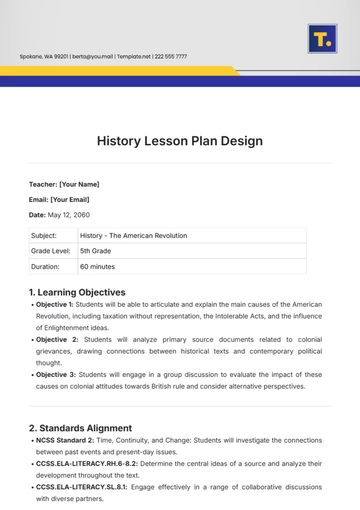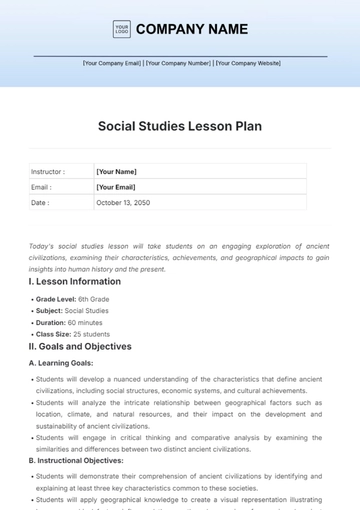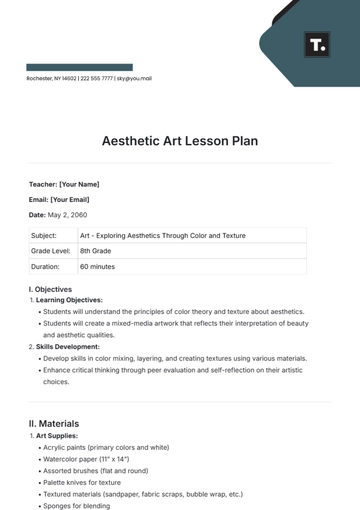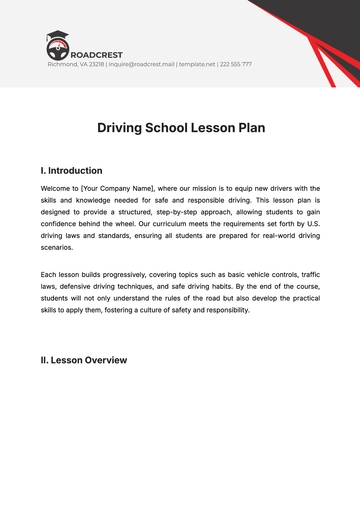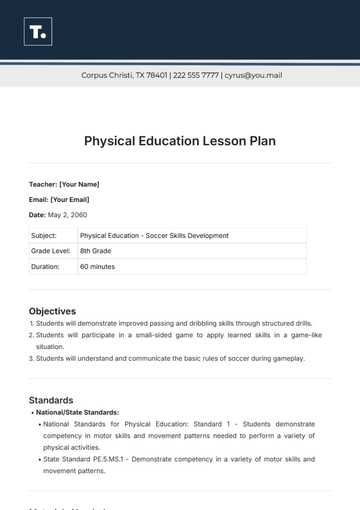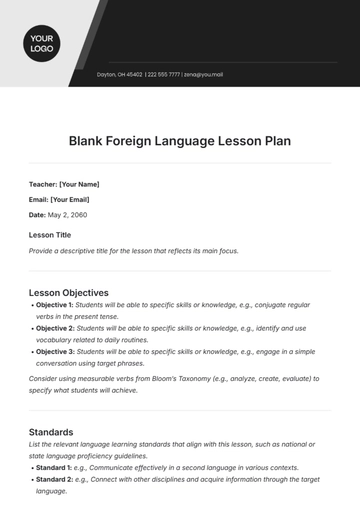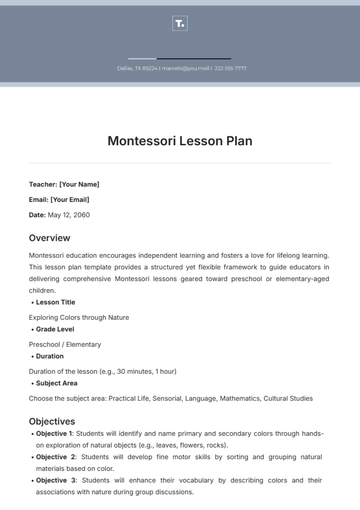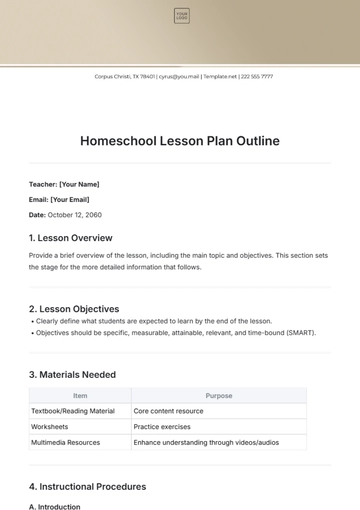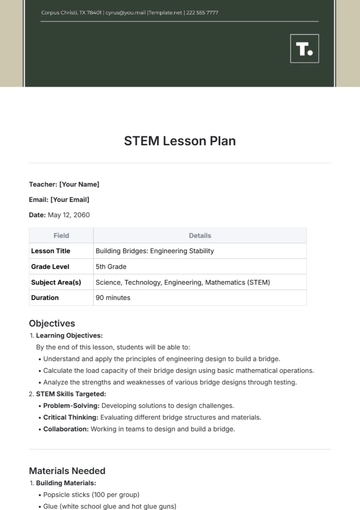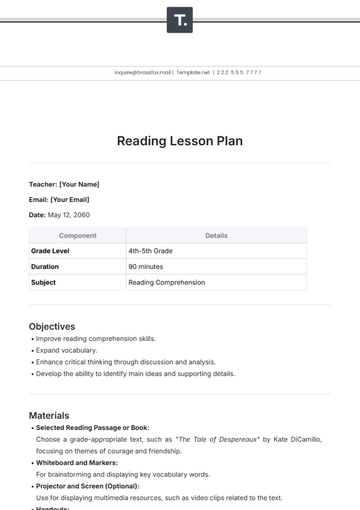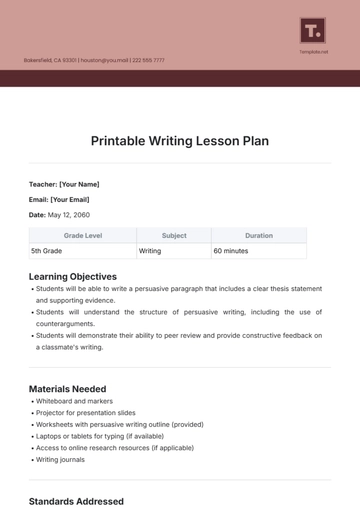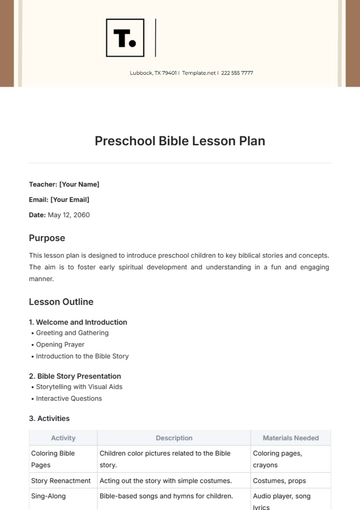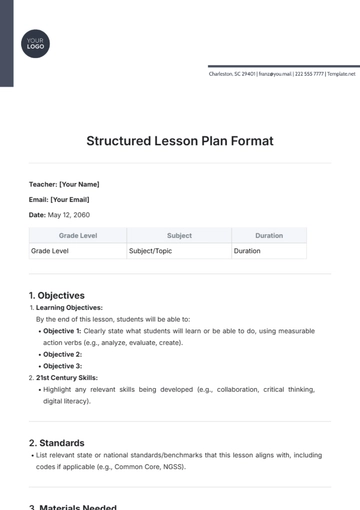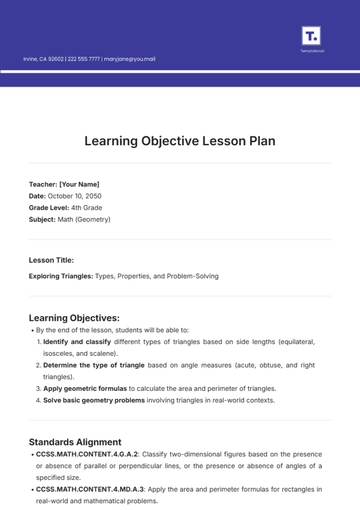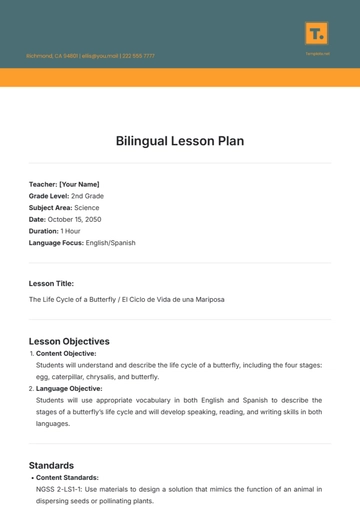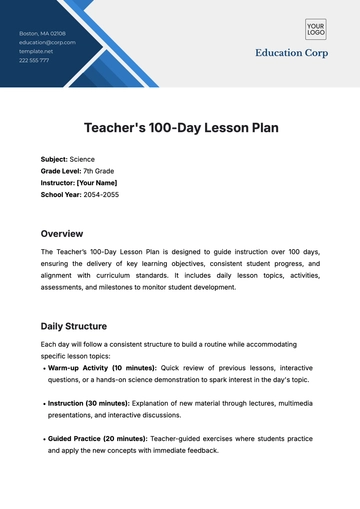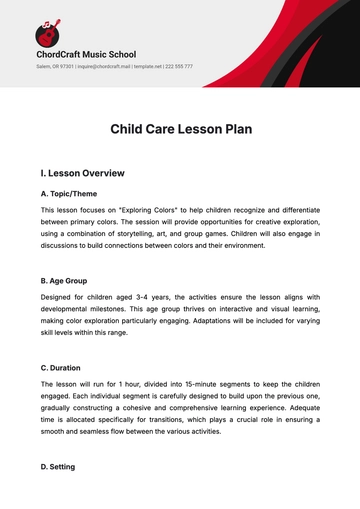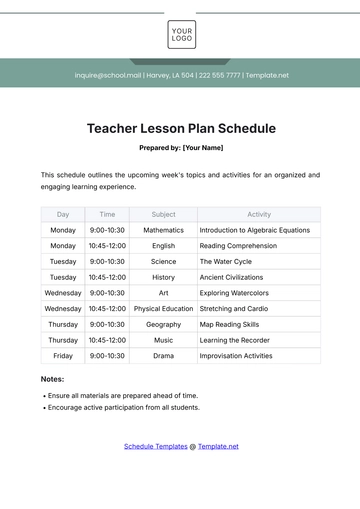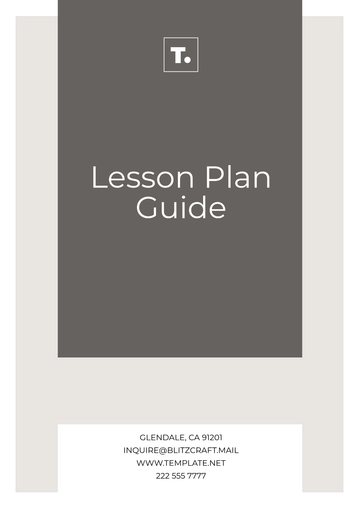Free Speech Therapy Lesson Plan
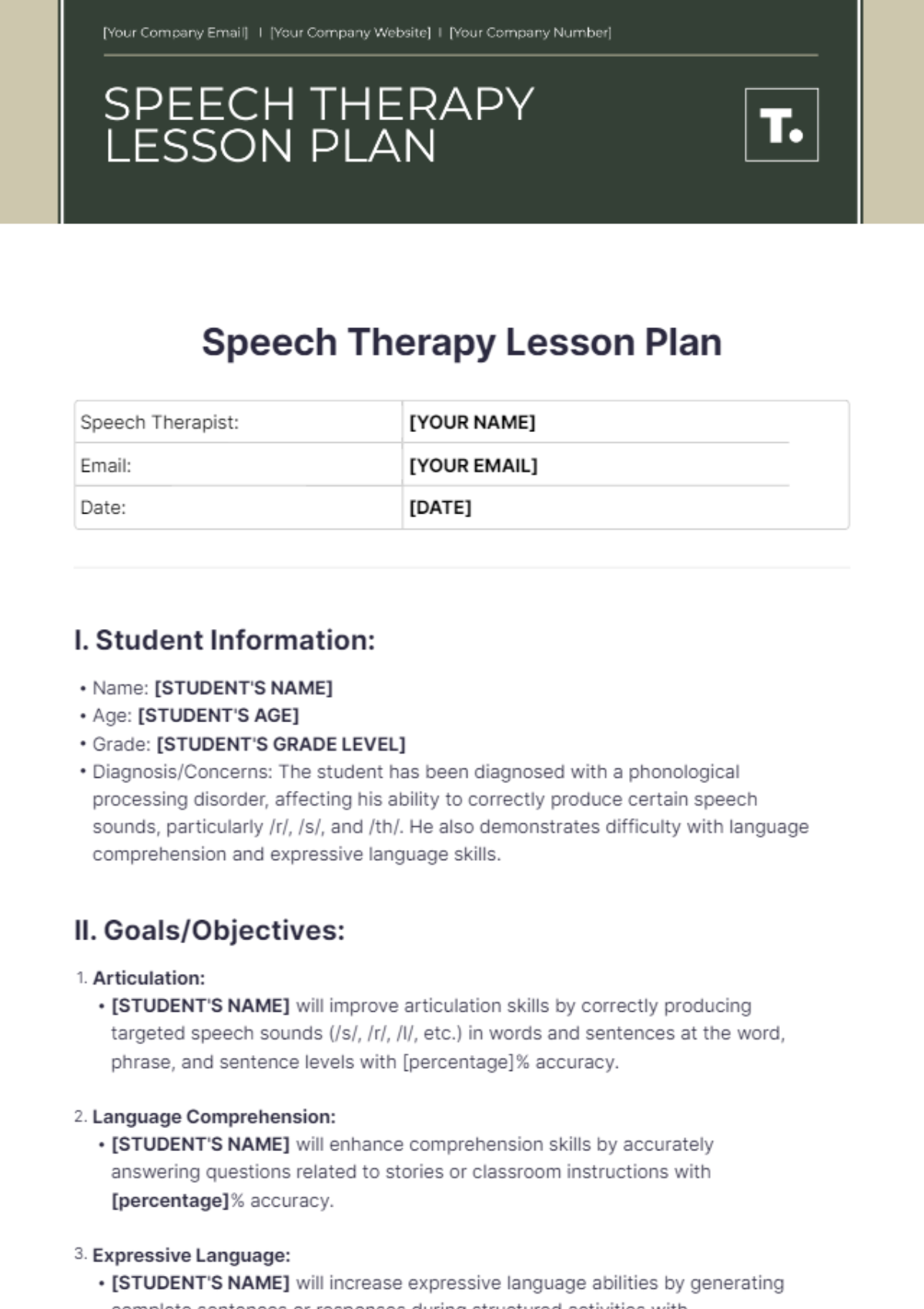
Speech Therapist: | [YOUR NAME] |
Email: | [YOUR EMAIL] |
Date: | [DATE] |
I. Student Information:
Name: [STUDENT'S NAME]
Age: [STUDENT'S AGE]
Grade: [STUDENT'S GRADE LEVEL]
Diagnosis/Concerns: The student has been diagnosed with a phonological processing disorder, affecting his ability to correctly produce certain speech sounds, particularly /r/, /s/, and /th/. He also demonstrates difficulty with language comprehension and expressive language skills.
II. Goals/Objectives:
Articulation:
[STUDENT'S NAME] will improve articulation skills by correctly producing targeted speech sounds (/s/, /r/, /l/, etc.) in words and sentences at the word, phrase, and sentence levels with [percentage]% accuracy.
Language Comprehension:
[STUDENT'S NAME] will enhance comprehension skills by accurately answering questions related to stories or classroom instructions with [percentage]% accuracy.
Expressive Language:
[STUDENT'S NAME] will increase expressive language abilities by generating complete sentences or responses during structured activities with [percentage]% accuracy.
III. Activities/Interventions:
Articulation Practice:
Use flashcards or word lists targeting [specific speech sounds].
Practice correct sound production at the word, phrase, and sentence levels.
Provide visual and auditory cues as needed.
Language Comprehension Activities:
Read a short story or passage aloud.
Ask comprehension questions related to the story (e.g., Who? What? Where? When? Why? How?).
Encourage [STUDENT'S NAME] to retell the story in their own words.
Expressive Language Exercises:
Engage in conversation about a chosen topic.
Encourage [STUDENT'S NAME] to express thoughts and ideas using complete sentences.
Provide sentence starters or visual prompts to support expression.
IV. Materials/Resources:
Flashcards with targeted speech sounds
Storybooks or reading materials
Visual aids or picture cards
Whiteboard and markers
Timer or stopwatch
V. Progress Notes:
Jeremy showed improvement in correctly producing /r/ and /s/ sounds during articulation practice.
He struggled with answering comprehension questions but demonstrated improvement with visual cues.
[STUDENT'S NAME] expressed himself more confidently during expressive language exercises, although he still relied on prompting for complete sentences.
VI. Homework/Assignments:
Practice /r/, /s/, and /th/ sounds for 10 minutes each day using provided flashcards.
Read a short story aloud and answer comprehension questions at home.
Engage in a conversation with a family member or friend, focusing on using complete sentences.
VII. Note:
This Lesson Plan is designed to guide therapy sessions for [STUDENT'S NAME] as part of their Individualized Education Program (IEP). Adjustments may be made based on ongoing assessment and progress monitoring. For any questions or concerns, please contact [Your Name] at [Your Email].
- 100% Customizable, free editor
- Access 1 Million+ Templates, photo’s & graphics
- Download or share as a template
- Click and replace photos, graphics, text, backgrounds
- Resize, crop, AI write & more
- Access advanced editor
Introducing the groundbreaking Speech Therapy Lesson Plan from Template.net! This meticulously crafted resource is your key to effective speech intervention. With its user-friendly interface and AI Editable Tool, customize sessions effortlessly. Tailor exercises to individual needs, fostering optimal progress. Experience seamless planning and unparalleled flexibility. Elevate your therapy sessions with this innovative, editable gem!
